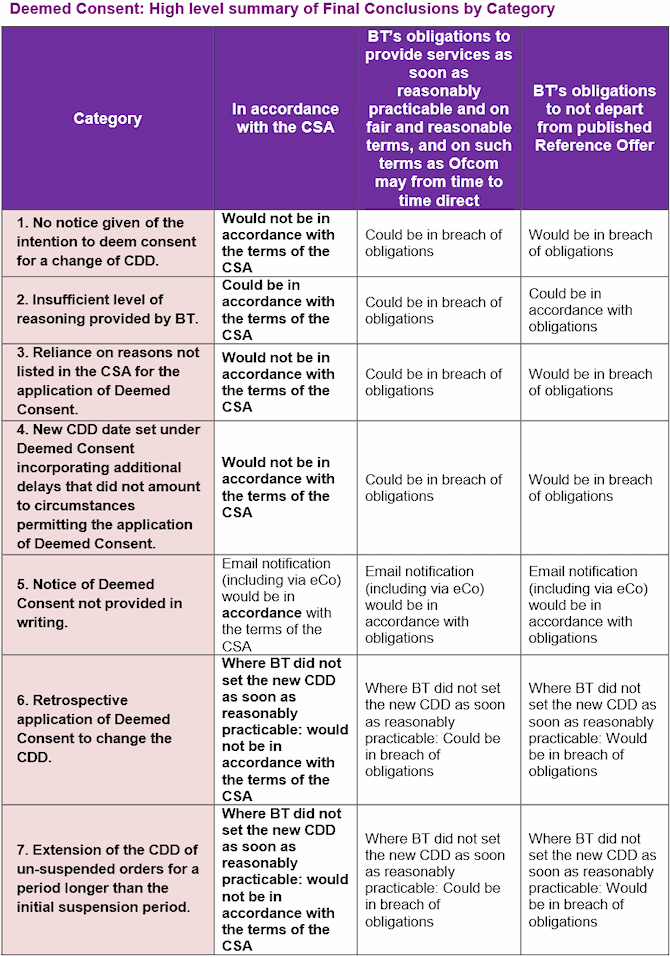Ofcom Tries to Resolve Vodafone Complaint of Unfair BT Ethernet Delays
The national UK telecoms regulator has ruled that BTOpenreach does in some cases appear be in breach of several obligations because of the way that it delayed the provision of certain Ethernet (high-capacity data line) services to Vodafone, although the issue of compensation may be harder to resolve.
Ofcom imposes an obligation upon BT to provide its services “as soon as reasonably practicable and on fair and reasonable terms“, yet Vodafone complained last year (here) that Openreach had been using the Deemed Consent (DC) mechanism in its contracts (clause 2.3) to “inappropriately” delay service provision.
Advertisement
The DC mechanism exists to cover a variety of factors that could cause delays to service provision, such as via the need to repair damaged infrastructure, tackle asbestos or clear blocked cable ducts etc. An Openreach spokesperson told ISPreview.co.uk, “Ethernet provision is very complex and errors can occur in the process, though these were neither deliberate nor systematic.”
Generally Ofcom notes that DC “provides BT with a potentially wide-ranging means of delaying provision of services” and it is therefore vital that any use of DC by BT must involve providing sufficient information to the customer (Vodafone) in order to help them understand the reasons for the delay, how that might affect timescales and to also potentially challenge its use etc.
Broadly speaking Ofcom’s Final Determination found a number of flaws with BT’s approach, such as in how the process for reporting DC to Vodafone did not appear to offer “sufficient transparency for the CP to understand the reasons for the delay” or its impact upon timescales.
“Despite the complexities involved in the provisioning of Ethernet services, we believe that the evidence we have seen suggests that more detailed information was held by BT and that this could have been communicated to CPs,” said Ofcom.
Advertisement
The full report is quite long, although we did find a useful high-level summary of Ofcom’s conclusions (note: CSA = BT’s Connectivity Services Agreement and CDD = Contractual Delivery Date).

Vodafone had wanted to be compensated for BT’s failings, although in this instance Ofcom only has limited powers (i.e. a court may be better placed to decide, if it comes to that) and in other aspects BT’s regulatory obligation was merely to monitor and make proactive payments in respect of fault repair only.
In the end Ofcom ordered BT to improve some aspects of their system(s) and encouraged them to “ensure that proactive compensatory payments are made” in relation to individual orders where such an outcome may be justified, which will no doubt give both sides the odd headache.
Separately Ofcom has already launched a wider investigation into BT’s use or misuse of the Deemed Consent mechanism, which began last November 2015 (here).
Advertisement
Mark is a professional technology writer, IT consultant and computer engineer from Dorset (England), he also founded ISPreview in 1999 and enjoys analysing the latest telecoms and broadband developments. Find me on X (Twitter), Mastodon, Facebook, BlueSky, Threads.net and Linkedin.
« UK ISPA and ITSPA Adopt Ombudsman Services for Consumer Complaints
















































Comments are closed